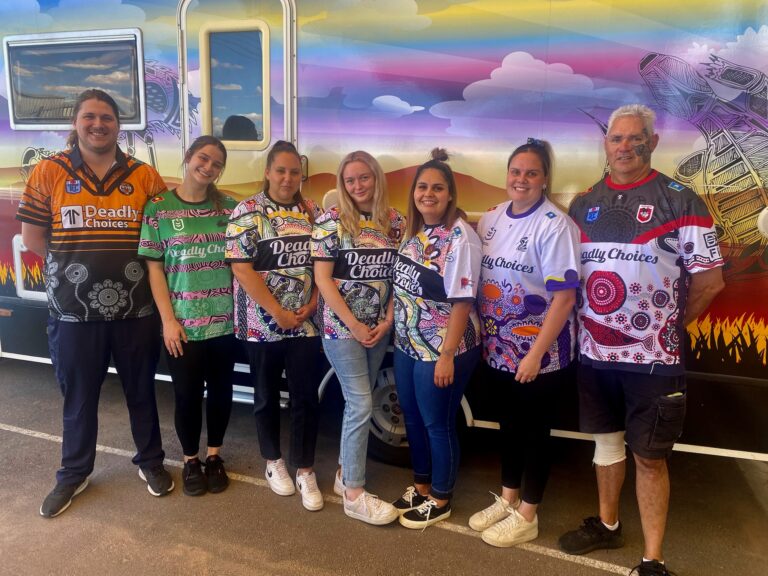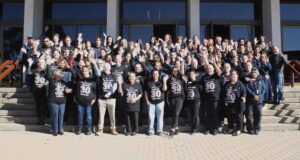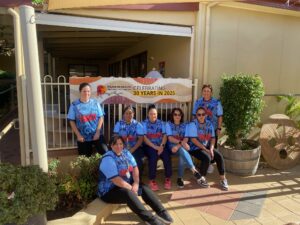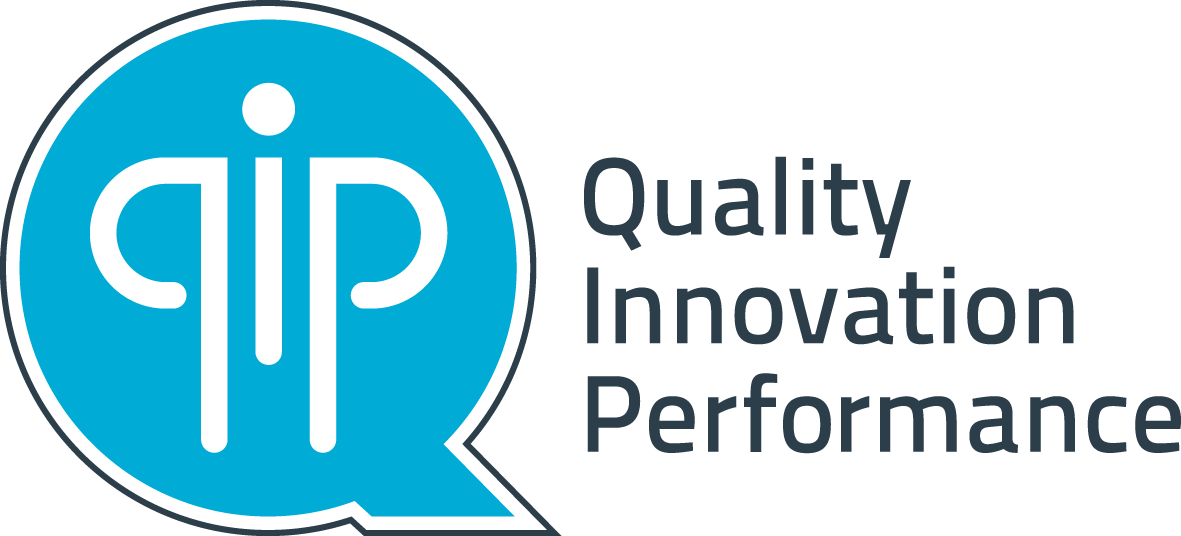Latest news

Strength, Vision and Legacy: Celebrating Aboriginal Community-led impact
NAIDOC Week 2025
National Aborigines and Islanders Day Observance Committee (NAIDOC) Week is held every year to recognise and celebrate the history, culture and achievements of Aboriginal and Torres Strait Islander peoples across Australia. In 2025, this date marks a significant milestone with NAIDOC being a time of national observance and advocacy for 50 years.
Each year during the first week of July (from 6 to 13 July in 2025), NAIDOC Week invites all Australians to connect with the world’s oldest continuous cultures, and to take part in events that honour the strength, leadership, and ongoing contributions of Australia’s First Nations communities. It’s a time to reflect on the past, celebrate the present, and look ahead to a future shaped by self-determination, culture and community.
This year’s theme, “The Next Generation: Strength, Vision & Legacy”, celebrates the powerful leadership of young people while acknowledging the guidance of Elders and the legacy they’ve built. It’s a reminder that strong communities are grounded in culture and built on generations of knowledge and experience.
As part of NAIDOC Week 2025, we had the opportunity to engage with representatives from Maari Ma Health Aboriginal Corporation, an Aboriginal Community Controlled Health Organisation (ACCHO). This organisation is deeply connected to the communities it serves and is leading change through culturally safe care, youth empowerment, and community-driven programs.
This conversation highlights what NAIDOC Week means within their team and community, the ways it supports youth as emerging leaders, and how culture and legacy continue to shape their everyday work.
Maari Ma Health Aboriginal Corporation
Maari Ma Health Aboriginal Corporation (Maari Ma) is a community-controlled health organisation based in Broken Hill, far western New South Wales. Led by and deeply embedded within the local Aboriginal community, Maari Ma provides culturally safe, community-driven healthcare. Since 1995, Maari Ma has grown from a small local clinic into a vital service for surrounding areas, offering high-quality healthcare to multiple communities.
This organisation delivers holistic, person-centred carethrough a skilled team of doctors, nurses, and Aboriginal health practitioners. Services range from check-ups and dental care to chronic disease and mental health support. Community programs also include a youth centre in Wilcannia and early childhood services in remote areas. This integrated model supports families at every stage of life through one culturally safe provider.
A central focus of Maari Ma’s work has been recruiting, developing, and empowering Aboriginal staff, fostering leadership, and ensuring strong Indigenous representation at all levels of the organisation. Providing locally delivered, culturally relevant care remains central to its community impact.
Maari Ma’s commitment to quality and cultural integrity is reflected in its national accreditations, including QIP’s QIC Health and Community Services Standards, the NSQHS Standards, and General Practice Accreditation with AGPAL.
We were delighted to hear from Richard Weston, Chief Executive Officer of Maari Ma, who shared the organisation’s perspectives on NAIDOC Week, supporting youth, quality improvement, and the importance of culture and legacy in their work.

NAIDOC Week: unity, reflection, and focus on youth
For Maari Ma and its community, NAIDOC Week is both a celebration of culture and a time for reflection. It allows all Australians to acknowledge Aboriginal and Torres Strait Islander achievements while recognising ongoing challenges that still must be overcome so that Aboriginal people can enjoy the same health and wellbeing outcomes as other Australians. As Chief Executive Officer Richard Weston explains, the week brings people together to “connect with each other and the broader Australian community to celebrate what unites us all as Australians.”
At Maari Ma, this year’s theme focuses on young people who will carry the community’s story forward. Youth-led and cultural celebrations are planned, offering space to honour their contributions and inspire the next generation of leaders.
Leadership across generations: empowering youth and honouring Elders
For over three decades, Maari Ma has supported the health and wellbeing of two generations of families. Children and young people who attended early years programs are now returning as parents, bringing their own children. Reflecting on their impact in their local area, Weston says, “people have greater awareness of their health than they did 30 years ago”, demonstrating how Maari Ma’s services and systems work to support community health.
Maari Ma also focuses on local leadership by actively recruiting Aboriginal people into a wide range of roles, supporting their training and development into qualified health professionals, “We have many stories amongst our Aboriginal workforce of colleagues who started from humble beginnings to become professional, highly regarded clinicians.”
The importance of Elders’ leadership is also part of the organisation’s strategic direction, with an all-Indigenous Board providing a leading example for the community as the Board’s trust and participation reinforce the cultural strength of Maari Ma’s work.
Evolving to meet community needs and to improve quality services
Maari Ma has a long tradition of reflective practice and quality improvement which is reflected in its multiple accreditations against national health and community standards. They regularly evaluate their services, measure outcomes, and conduct annual planning cycles to set goals for the future. For example, the team recently reviewed its Social and Emotional Wellbeing services and began implementing a new model of care, centered around Aboriginal cultural leadership. By constantly asking how they can do better and measuring their impact, Maari Ma ensures programs are effective and aligned with community needs and cultural identity.
In 2023, Maari Ma also conducted a clinical governance review as they realised they “had evolved into a much more complex and sophisticated health provider over time,” but their governance arrangements had not been updated accordingly. To address this, they involved senior First Nations leadership to implement key recommendations from the review, including revamping their Clinical Governance Committee to strengthen oversight of quality care. As a result of the feedback from the review, they re-established walk-in clinics in Broken Hill, improving accessibility and timely care for community members.

Inspiring generations to come
In the future, Maari Ma wants to continue supporting communities to have meaningful and healthy lives rooted in culture and identity. Weston explains, “We want our people to have hope that the future will be better and that our culture and identity will continue for another 65,000 years.” This commitment stems from the organisation’s efforts to support the next generation of Aboriginal leaders, clinicians, and change-makers.
Maari Maa also hopes to continue being a stepping stone for Aboriginal people pursuing a career in health, so that the workforce increasingly reflects the communities it serves. Ultimately, their goal is to remain a trusted presence “as long as our community wants us,” adapting to whatever the future brings. By fostering hope and strengthening the capacity of the community, they aim to ensure that strength, vision and legacy will continue into the future.
Honouring legacy, empowering future generations
NAIDOC Week is a great reminder of the strength, legacy, and vision that continues to shape Aboriginal and Torres Strait Islander communities across Australia. Through the work of organisations like Maari Ma Health Aboriginal Corporation we can see this year’s theme, “The Next Generation: Strength, Vision & Legacy” actively being realised. Aboriginal Community Controlled Organisations continue delivering culturally safe, community-led care, while also empowering young leaders, guided by the wisdom of Elders, to strengthen culture through every service they provide.



